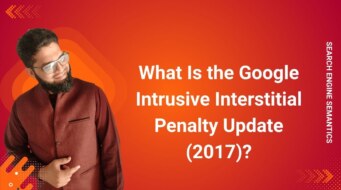What is Link Equity in SEO?
Link equity, also known as link authority, refers to the value or ranking power that a hyperlink passes from one page to another. This SEO concept is fundamental in determining which pages rank higher in search engine results. When a reputable site links to your page, it “shares” part of its credibility—boosting your page’s visibility.
How Does Link Equity Work?
When a webpage with high authority links to another, it transfers part of its SEO strength to the linked page. This helps improve that page’s ranking potential.
Example:
If Wikipedia links to your SEO guide, your guide gains significant link equity, giving it a better chance of ranking on page one.
But link equity is not infinite. It’s divided among all outbound links on a page.
A page with 10 outbound links shares less equity per link than a page with only 2.
More links = thinner equity per link.
Internal vs. External Links
| Type of Link | Purpose | Impact on Link Equity |
|---|---|---|
| Internal Links | Link between pages on the same website | Helps distribute equity across your site and improves crawlability |
| External Links | Links from other websites to your pages | Transfers SEO value from authoritative sources |
How Link Equity Works: The Foundation of Authority Flow?
Link equity is passed when a crawlable, dofollow link connects one page to another. When Page A links to Page B, Page A transfers part of its accumulated authority to Page B. This transfer influences the receiving page’s ability to rank and also affects how quickly Google discovers and indexes that page.
The underlying principle stems from Google’s early ranking model, where links served as “votes” — with stronger votes coming from pages with their own powerful backlink profiles. Modern search has evolved, but authority signals routed through links continue to influence visibility, especially when combined with content quality and E-E-A-T evaluations.
Link equity interacts heavily with both indexing and crawling efficiency. If a page has strong inbound links, Google assigns it higher crawl priority, meaning faster discovery and more frequent refresh checks. Equity therefore operates not just as a ranking factor but as an infrastructural force across the entire SEO ecosystem.
Internal links and external links both carry equity, but external links tend to be more powerful because they represent third-party trust. Still, an expertly designed internal architecture can often outperform poor-quality backlink profiles by ensuring equity reaches your most important URLs.
Key Factors That Determine How Much Link Equity Flows
Google doesn’t treat all links equally. Several contextual and technical factors determine the amount of equity a link can pass.
Authority & Trust of the Linking Page
A link from a strong, reputable page carries significantly more weight than one from a thin or low-trust source. Pages with meaningful domain authority or strong backlink profiles pass more value.
Topical Relevance
Google’s semantic understanding ensures that equity is amplified when the linking page aligns with the receiving page’s topic. This is why keyword research and content clustering directly influence link value: the more contextually aligned the source, the stronger the transferred relevance.
Anchor Text Context
Anchor text provides a powerful semantic cue. Descriptive anchors guide Google in understanding the relationship between pages more effectively than generic text. Over-optimization, however, can trigger issues similar to exact match anchor text manipulation — so natural variation matters.
Outbound Link Count
Every page has a finite pool of link equity. If the linking page has dozens of outgoing links, each one receives a smaller portion. Overlinking dilutes impact and affects how Google interprets link intention.
Link Attributes
Dofollow links pass full equity
Nofollow or sponsored attributes reduce or block equity transfer
UGC links may pass limited value depending on context
Understanding these attributes is critical in avoiding issues related to unnatural links or backlink penalties.
Internal Link Equity: The Power You Control
Internal linking is your most predictable and controllable method of distributing link equity across your website. When done correctly, it strengthens rankings, improves discoverability, and helps new pages gain traction more quickly.
Internal links guide Google through your architecture and help prioritize important pages — especially when supported by strategic SEO silo structures and contextual interlinking.
Why Internal Links Are Essential for Equity Flow?
They help distribute authority from strong external backlinks throughout your site.
They enhance the visibility of deeper pages, avoiding orphan page scenarios.
They improve engagement and reduce pogo-sticking, reinforcing signals of content quality and relevance.
Anchor text and placement matter. Links embedded within core content typically offer more weight than sidebar or footer links, as Google evaluates contextual relevance within the primary content block.
Internal link optimization also prevents the dilution caused by excessive outbound external links. This balance keeps equity circulating within your domain instead of leaking unnecessarily.
External Link Equity: The Trust Signal Search Engines Value Most
External backlinks remain the strongest source of link equity because they reflect third-party endorsement — a signal incredibly difficult to fake at scale.
Backlinks influence:
Authority perception
Topical expertise
Competitive differentiation
Eligibility for high-impact SERP features
When high-authority websites link to your content, they contribute to your domain’s trust signal, helping your pages rank faster and more consistently. This is especially important in competitive niches and YMYL pages where risk and scrutiny are higher.
However, backlinks must be acquired naturally. Low-quality links may trigger algorithmic penalties or manual actions, particularly in cases of link manipulation or aggressive link schemes.
Link Equity in the Context of Modern Google Algorithms
Google’s ranking systems in 2025 rely on entity understanding, semantic context, user behavior signals, and robust quality evaluation frameworks. Despite this complexity, link equity remains deeply woven into Google’s assessment of trust and authority.
Link Equity & Crawl Efficiency
Pages that receive equity from important URLs benefit from enhanced crawl priority. This relationship aligns closely with the mechanics of crawl budget and crawl demand, both of which determine how frequently a site is visited and refreshed.
Link Equity & Semantic SEO
Google evaluates how well-connected content is across a domain, assessing whether clusters reflect logical topic development. This approach mirrors best practices in content marketing and acts as a reinforcement signal for relevance mapping.
Link Equity & E-E-A-T
Pages with strong inbound equity often enjoy higher perceived experience, expertise, authority, and trustworthiness. These signals are particularly important for financial, health, or sensitive informational content.
How to Build and Maximize Link Equity: Modern Best Practices
Create Linkable Assets
High-value assets such as data studies, evergreen tutorials, and visual resources naturally attract backlinks. This complements strategies like digital PR and targeted outreach campaigns.
Strengthen Internal Architecture
Use contextual anchors and strategic clustering to ensure equity moves toward your most important URLs. Avoid patterns that cause link rot or equity-draining redirects.
Audit for Technical Blockers
Equity cannot flow through:
Broken internal links
Incorrect canonicalization
Unnecessary or misapplied nofollow attributes
Multiple redirect chains
Addressing these issues should be a core part of every SEO site audit.
Protect Against Negative Link Equity
Toxic backlinks can harm trust signals. Use tools and processes such as disavow links when necessary to mitigate risk.
Final Thoughts on Link Equity
Link equity is more than a ranking factor — it is the connective tissue that determines how authority flows across your digital ecosystem. When aligned with strong content, strategic architecture, and technical precision, link equity becomes a compounding asset that increases visibility and resilience across every stage of the search experience.
Mastering link equity means mastering the flow of authority, trust, and context — three pillars of modern search performance.
Want to Go Deeper into SEO?
Explore more from my SEO knowledge base:
▪️ SEO & Content Marketing Hub — Learn how content builds authority and visibility
▪️ Search Engine Semantics Hub — A resource on entities, meaning, and search intent
▪️ Join My SEO Academy — Step-by-step guidance for beginners to advanced learners
Whether you’re learning, growing, or scaling, you’ll find everything you need to build real SEO skills.
Feeling stuck with your SEO strategy?
If you’re unclear on next steps, I’m offering a free one-on-one audit session to help and let’s get you moving forward.
Table of Contents
Toggle


